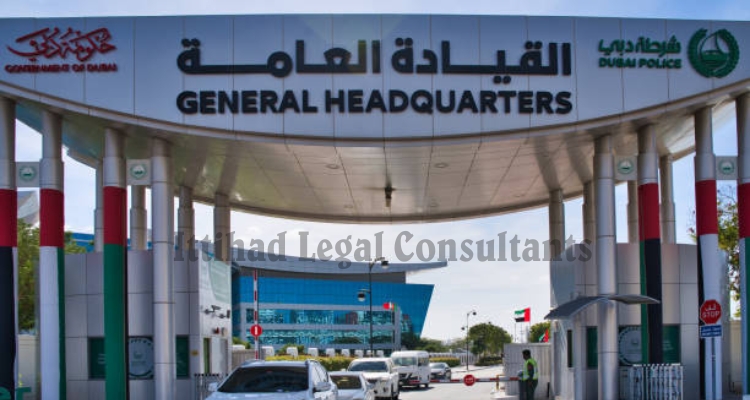Overview of Copyright Law
Introduction Copyright Law In an era where creativity fuels progress, safeguarding the rights of creators has become paramount. It is where Copyright Law steps in as the vanguard of intellectual property protection. Understanding the nuances and implications of Copyright Law is vital for creators, businesses, and consumers alike. Understanding Copyright Law and Its Significance The multifaceted legal framework of Copyright Law grants creators exclusive rights to their original works. These works cover a broad spectrum, including literature, music, art, and even software. This legislative framework crucially fosters innovation, instilling in creators the confidence that they can effectively utilize their artistic endeavors. Historical Evolution of Copyright Law To appreciate the current state of Copyright Law, a journey through its historical evolution is imperative. The roots of modern copyright can be found through centuries, shaped by pivotal moments in human history. Tracing the Roots of Copyright Law The foundations of copyright-like protections began to emerge during the Renaissance when the printing press revolutionized the dissemination of knowledge. Entities like the Stationers’ Company, established in England in 1557, were early endeavors to regulate the publication of books, marking a crucial step towards the formalization of copyright. Milestones in the Development of Copyright Law The evolution of Copyright Law continued with landmark legislation. The Copyright Act of 1790 in the United States represented a pivotal moment in codifying copyright protections, establishing a framework that has endured for centuries. Additionally, the Berne Convention of 1886 laid the groundwork for international copyright protection, solidifying the global importance of copyright. Critical Concepts in Copyright Law Navigating the terrain of Copyright Law requires a solid grasp of fundamental concepts that underpin its application. Defining “Copyright” At its core, copyright is a collection of exclusive rights granted to creators. These rights empower creators to control the reproduction, distribution, and public performance of their works. Understanding Intellectual Property Rights Copyright Law resides within the broader framework of intellectual property law, which encompasses patents, trademarks, and trade secrets. Each branch of intellectual property law provides distinct protections for different forms of intellectual creation. Purpose and Objectives of Copyright Law Copyright Law is not a one-dimensional concept; it serves various purposes and objectives. Balancing Creator Rights and Public Interest A central tenet of Copyright Law is striking a balance between the rights of creators and the interests of the public. It seeks to reward creators for their contributions while ensuring society benefits from the free flow of knowledge and culture. Fostering Innovation and Creativity By granting creators exclusive rights to their works, Copyright Law acts as a catalyst for innovation and creativity. It provides the necessary incentives for individuals and entities to invest in developing new ideas and expressions. Scope of Protection under Copyright Law Copyright Law casts a wide net, offering protection to various creative works. However, it’s imperative to understand the limitations and exclusions within this legal framework. Categories of Copyrightable Works Under Copyright Law, various forms of creative expressions find protection. It includes literary works, musical compositions, artistic creations, and software code. The breadth of coverage ensures that creators from diverse fields are protected. Exclusions and Limitations Notably, copyright laws do not encompass all forms of artistic works. The omission of valuable objects, facts, and ideas underscores the law’s focus on distinct and expressive creations. It ensures that they judiciously utilize their creative efforts. Copyright Law vs. Other Intellectual Property Laws Distinguishing Copyright Law from other branches of intellectual property law is crucial for a comprehensive understanding of intellectual property rights. Contrasting Copyright with Trademarks and Patents Copyright primarily safeguards artistic and literary works, while trademarks protect brands and logos, and patents grant exclusive rights to inventions. Each facet of intellectual property law serves as a pillar in protecting different forms of innovation. Overlapping Areas and Intersections In practice, there can be overlaps between copyrights, trademarks, and patents, particularly in industries where creativity and technological innovation converge. Understanding these intersections is essential for businesses and creators operating in multifaceted fields. International Copyright Treaties and Agreements In an interconnected global landscape, international agreements play a pivotal role in harmonizing Copyright Law across borders. Harmonizing Copyright Laws Globally Treaties like the Berne Convention and the Agreement on Trade-Related Aspects of Intellectual Property Rights (TRIPS) establish a unified framework for copyright protection worldwide. These agreements facilitate the seamless protection of creative works in diverse jurisdictions. Significance of Treaties for Copyright Holders For creators and rights holders, international treaties provide a means to safeguard their works in foreign territories. It ensures that their intellectual property enjoys a broader reach and affords protection on a global scale. Enforcement of Copyright Law Ensuring the effective enforcement of Copyright Law is essential in upholding the rights of creators and preserving the system’s integrity. Identifying and Addressing Copyright Infringements Examples of copyright infringement include performing in public without the required license and unapproved reproduction. Identifying and addressing these infringements is crucial in maintaining the integrity of creative works. Legal Remedies for Copyright Violations Copyright holders have a range of legal remedies at their disposal. These can include seeking injunctions, claiming damages, and, in severe cases, pursuing criminal prosecution. Understanding the available treatments empowers creators to protect their intellectual property effectively. Fair Use Doctrine Central to Copyright Law is the doctrine of fair use, a crucial balancing act between creator rights and the public’s right to access and use creative works. Balancing Copyright Protection with Freedom of Expression Fair use allows for the limited use of copyrighted material without explicit permission. This exception is particularly pertinent for criticism, comment, news reporting, teaching, scholarship, and research. It strikes a delicate balance between creator rights and the public interest. Criteria for Determining Fair Use Determining fair use is a nuanced process that takes into account various factors. Courts consider the purpose of use, the nature of the copyrighted work, the amount used, and the potential effect on the market. This multifaceted assessment ensures that fair use is applied judiciously. Emerging Trends and Challenges in Copyright Law In a rapidly evolving
Overview of Copyright Law Read More »













